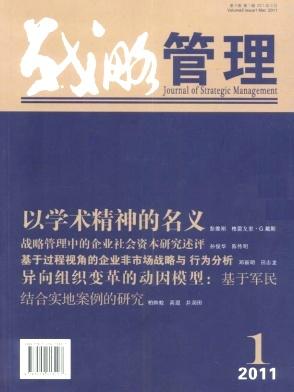Efficiency Based on Smart Company Performances: BOD Analytics in Urban Agenda Context
引用次数: 0
Abstract
Modern conditions characterized by the fourth industrial revolution emphasized the crucial role of intangible assets in the success of companies. Tangible and intangible assets of companies within cities make a significant part of the development of competitive knowledge-based cities. However, development trends in recent decades have shifted the focus from tangible assets to intangible assets such as knowledge, innovation and intellectual property. In modern conditions, intangible assets are becoming an important strategic resource necessary for the improvement of the competitive advantage of companies within any industry. There is evidence of the influence of intangible assets on improving company performance and creating corporate value. The development of the knowledge-based economy has additionally encouraged companies to efficiently use soft capital such as human capital and knowledge since economic development in modern conditions is driven by soft capital. Therefore, the aim of this paper is to evaluate the efficiency of intangible asset management within the high-tech industry companies of ten European cities (Amsterdam, Barcelona, Berlin, Brussels, Dublin, Lisbon, London, Oslo, Paris and Zurich). The sample consists of data for 2775 high-tech companies within stated cities related to the number of patents, the number of trademarks, annual fixed asset growth rate, annual intangible asset growth rate, share of intangible asset in total asset, annual current asset growth rate and current ratio for the last year available in the Amadeus database. Efficiency evaluation was performed by creating a composite index using the Benefit of Doubt approach. The results of the efficiency analysis indicate that a large part of the companies in the sample achieves relatively low levels of efficiency. Differences in average efficiency between companies in the analysed cities were assessed using one-way ANOVA. The results indicate that the average efficiency of high-tech companies operating in Dublin is significantly better than the average efficiency of high-tech companies in other analysed European cities. In addition, high-tech companies operating in Berlin are, on average, more efficient than high-tech companies operating in Paris and London. There are no statistically significant differences between the average efficiencies of high-tech companies in other analysed European cities.基于智能公司绩效的效率:城市议程背景下的BOD分析
以第四次工业革命为特征的现代条件强调了无形资产在企业成功中的关键作用。城市内企业的有形资产和无形资产是竞争性知识型城市发展的重要组成部分。然而,近几十年的发展趋势已将重点从有形资产转移到无形资产,如知识、创新和知识产权。在现代条件下,无形资产正在成为企业在任何行业中提高竞争优势所必需的重要战略资源。有证据表明,无形资产对提高公司绩效和创造公司价值有影响。知识经济的发展也促使企业有效地利用人力资本和知识等软资本,因为现代经济的发展是由软资本驱动的。因此,本文的目的是评估十个欧洲城市(阿姆斯特丹、巴塞罗那、柏林、布鲁塞尔、都柏林、里斯本、伦敦、奥斯陆、巴黎和苏黎世)高科技产业公司的无形资产管理效率。样本包括2775家高科技公司在指定城市的专利数量、商标数量、固定资产年增长率、无形资产年增长率、无形资产占总资产的比例、流动资产年增长率和流动比率等数据,这些数据均可在Amadeus数据库中找到。效率评估是通过使用怀疑利益法创建一个综合指数来进行的。效率分析的结果表明,很大一部分的公司在样本实现相对较低的效率水平。所分析城市的公司之间的平均效率差异使用单向方差分析进行评估。结果表明,在都柏林运营的高科技公司的平均效率明显优于所分析的其他欧洲城市的高科技公司的平均效率。此外,平均而言,在柏林运营的高科技公司比在巴黎和伦敦运营的高科技公司效率更高。在其他被分析的欧洲城市中,高科技公司的平均效率在统计上没有显著差异。
本文章由计算机程序翻译,如有差异,请以英文原文为准。
求助全文
约1分钟内获得全文
求助全文

 求助内容:
求助内容: 应助结果提醒方式:
应助结果提醒方式:


